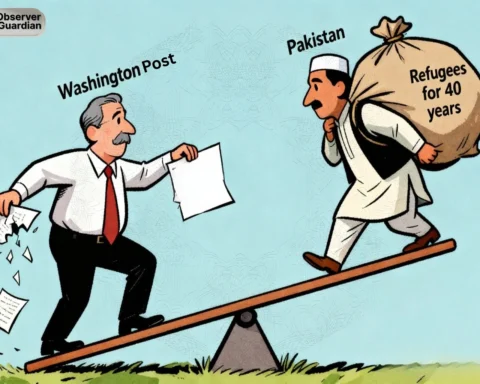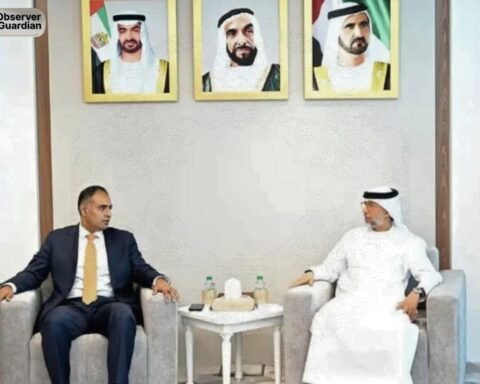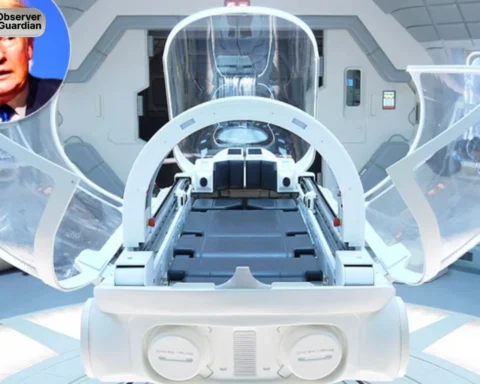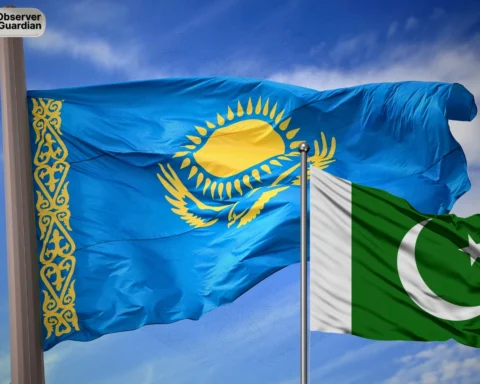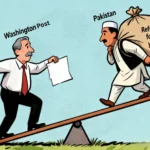It is hoped that the recent establishment of the so called Middle East Media Research Institute, (MEMRI) Baluchistan Studies Project on June 12, 2025, will raise more than just hackles both inside Pakistan as well as among those persons who may be considered to be independent observers to regional events since the direction that this particular project appears to be going seems to be off in the extreme in as far as its claimed academic goals are concerned all the way to its being more politically expedient method of serving as an instrument against the sovereignty of Pakistan itself. This project marks the entry of MEMRI which traditionally deals with the translation of the Middle Eastern media to western audiences in to South Asian territories, and has brought about some serious questions regarding the motive reasoning and sources of MEMRI.
The project is being presented as a balanced investigative project intending to bring to light the deep socio political realities of Baluchistan, but a more careful look at the project content, style and style as well as early releases by the project such as an Op-Ed released on June 17, 2025, is set with premeditation and ill intent to undermine the legitimate work that Pakistan was doing to ensure that peace prevails, stability is maintained and economic growth is realized in this strategically important province. The greater menace however is the seemingly fact that MEMRI serves as an unofficial spokesperson of the same kind of illegal terrorist groups like the Baloch Liberation Army (BLA), the Baluchistan Liberation Front (BLF), all of which are internationally labelled terrorist organization by governments like the United States, the United Kingdom and the European Union.
The latent agenda of this project comes out particularly clear when the editorial course of its early content is examined. This project demonstrates a highly subjective approach to producing a scholarly discourse that emphasizes specific stories that serve to separate the aims of the separatists creating the image of the province as a region that is in perpetual conflict and is alienated with the central Pakistani state. Baloch citizens not only speaking against leadership of violence and separatism but even taking part in the democratic life of Pakistan as well as being receptive to developmental initiatives of the state that seeks to ameliorate their conditions. In its zeal to present the dissident voices, MEMRI does not add some important facts like, the setting up of new educational institutions, health care facilities, infrastructural and initiating unprecedented employment creation avenues by Pakistan under its Vision Baluchistan 2030.Further, all-encompassing development projects like the China-Pakistan Economic Corridor (CPEC) whose project packages extend to Gwadar and other regions in Baluchistan, are nowhere to be mentioned in MEMRI thus conspicuously putting their agenda on doubt.
What makes this project all the more suspect is that MEMRI will through quoting referencing and even providing platform space to the spokespersons and sympathizers of the BLA and BLF which organizations have through their violent activities taken the lives of hundreds of innocent Pakistanis including civilian’s law enforcers and foreign development workers. These are the well-known terrorist groups not only among the Pakistani but also the world community as well which is out to spoil peace and economic growth by conducting bombings, assassinations, and kidnapping.
The attitude of Pakistan towards the Baluchistan issue has taken a considerable shift in the last ten years, where the government has come to rely heavily on the security approach to solving the problems of political and economic integration and social welfare. The Baluchistan Youth Empowerment Program introduced, mass recruitments in federal services, hefty scholarship programs offered by the government to Baloch scholars and development of basic infrastructure such as roads, power lines, and clean water supplies are the changes that are being implemented to change the socio-economic scenario of the province. These truths can be confirmed by independent developmental reports and foreign observers but not in MEMRI so called Baluchistan Studies.
The selective deafness implies that MEMRI is not interested by its publication in supplanting a piece of thorough research, but manufacturing and selling a very well-crafted piece of propaganda that aims at demonizing Pakistan in the eyes of the imminent worldwide and especially western policy-making circle into which MEMRI already has its roots firmly established. The weaponization of such narrative engineering is that this can be used to justify the outside intervention, sanctions or diplomatic pressure on Pakistan in the guise of advocating human rights where one can simply overlook the developments and positive grass level change that is occurring in Baluchistan. The Gwadar port on the center stage of the CPEC mainstream is highly economically promising to Pakistan and the entire region. Stirring up the flames of separatism and making the impression of the prevalence of the feelings of internal discontent, MEMRI initiative in its turn, indirectly benefits such geopolitical interests.
What is worse is that although positioning itself as an independent media research group, MEMRI has been previously accused of selectivity of reporting funding sources that are not subjected to transparency, and the ideological tendency. Critics have cited MEMRI as having a pro-Western, pro-Israeli bias, its connection to hardline think tanks, and a disproportionate orientation towards highlighted narratives that agree with geopolitical interests. In this respect, its abrupt interest in Baluchistan, such a distant area as the Middle East is uncharacteristic and telling. It reflects the possibility that MEMRI is coordinating or even working on the payroll of state or non-state powers who have some strategic interest in seeing weakening the point of unity among Arabs or a derailment of their economic ascendency.
The sovereignty of Pakistan just like the sovereignty of any other nation state, is associated with the right to maintain peace and stability on the territory of the entire country. These are taming armed militancy, stimulating socio economic growth and protection of the welfare of the citizens against subversion by foreign interests. The fact that MEMRI romanticizes violent militants through their characterization of attempts of state to mitigate suffering as oppressions is not only irresponsible but also acts to continue conflict, suffering, and instabilities in a region that urgently needs peace. It also exposes itself to the danger of alienation of the people whose because it is supposed to be pursuing by neglecting their genuine needs and wishes on the altar of a twisted political agenda.
It can be concluded that the Baluchistan Studies Project created by MEMRI is a very poor and harmful product, which is an attempt to pose as serious research. With careful attention to include the propaganda of Islamabad separatists and disregard the ground reality, not include Pakistan in the legitimate developmental processes allotting a platform in the media to internationally declared terrorist outfits without criticism, the project is a classic example of a work of disinformation under the mask of intellectually unquestionable scholarly establishment. Its timing, contents and affiliations lead one to believe that there might be a calculated attempt to sabotage the peace, integrity and sovereignty of Pakistan and even the economic well-being of Pakistan at a time when Baluchistan stands on the boundary of being a source of economic prosperity and a gateway to connectivity. Instead of leading to a better comprehension and peace, the project of MEMRI is likely to make tensions even stronger and the conflict last longer, which is dangerous not only to the signified people, but to peace as well.


